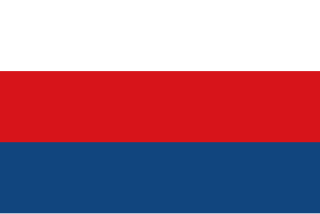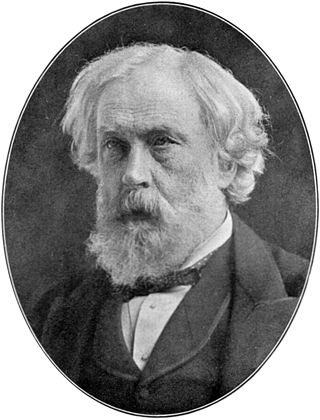
The Munich Agreement was an agreement concluded at Munich on 30 September 1938, by Nazi Germany, the United Kingdom, the French Republic, and Fascist Italy. The agreement provided for the German annexation of land on the border between Czechoslovakia and Germany called the Sudetenland, where more than three million people, mainly ethnic Germans, lived. The pact is also known in some areas as the Munich Betrayal, because of a previous 1924 alliance agreement and a 1925 military pact between France and the Czechoslovak Republic.

Jiří Mucha was a Czech journalist, writer, screenwriter, author of autobiographical novels and studies of the works of his father, the painter Alphonse Mucha.

The Protectorate of Bohemia and Moravia was a partially-annexed territory of Nazi Germany that was established on 16 March 1939 after the German occupation of the Czech lands. The protectorate's population was mostly ethnic Czech.

Carpatho-Ukraine or Carpathian Ukraine was an autonomous region within the Second Czechoslovak Republic, created in December 1938 by renaming Subcarpathian Rus' whose full administrative and political autonomy was confirmed by the Constitutional law of 22 November 1938. 20 years earlier, the region which had historically belonged to Hungary, was detached from Kingdom of Hungary and attached to the newly created Czechoslovakia by the Treaty of Trianon in 1920, and Hungary had sought to restore its historical borders and the revision of the Treaty of Trianon. On 2 November 1938, the First Vienna Award separated territories from Czechoslovakia, including the southern Carpathian Rus' that were mostly Hungarian-populated and returned them to Hungary. After the breakup of the Second Czechoslovak Republic, Carpatho-Ukraine proclaimed an independent republic on 15 March 1939, headed by president Avgustyn Voloshyn, who appealed to Hitler for recognition and support. Nazi Germany did not reply, and the short-lived state was invaded by the Kingdom of Hungary, crushing all local resistance by 18 March 1939.

Appletons' Cyclopædia of American Biography is a six-volume collection of biographies of notable people involved in the history of the New World. Published between 1887 and 1889, its unsigned articles were widely accepted as authoritative for several decades. Later the encyclopedia became notorious for including dozens of biographies of people who had never existed. In nearly all articles about the Cyclopædia various authors have erroneously spelled the title as 'Appleton's Cyclopædia of American Biography', placing the apostrophe in the wrong place.

Emil Dominik Josef Hácha was a Czech lawyer, the president of Czechoslovakia from November 1938 to March 1939. In March 1939, after the breakup of Czechoslovakia, Hácha was the nominal president of the newly proclaimed German Protectorate of Bohemia and Moravia.
Trans-Olza, also known as Trans-Olza Silesia, is a territory in the Czech Republic, which was disputed between Poland and Czechoslovakia during the Interwar Period. Its name comes from the Olza River.

Rudolf Beran was a Czechoslovak politician who served as prime minister of the country before its occupation by Nazi Germany and shortly thereafter, before it was declared a protectorate. A leader of the Agrarian Party from 1933, he was appointed prime minister by President Emil Hácha on 1 December 1938.

Sir Samuel Wilks, 1st Baronet, was a British physician and biographer.

Jiří Grygar is a Czech astronomer, popularizer of science and Kalinga Prize (1996) laureate.

Emanuel Moravec was a Czech army officer and writer who served as the collaborationist Minister of Education of the Protectorate of Bohemia and Moravia between 1942 and 1945. He was also chair of the Board of Trustees for the Education of Youth, a fascist youth organisation in the protectorate.

Jiří Voskovec, born Jiří Wachsmann and known in the United States as George Voskovec was a Czech actor, writer, dramatist, and director who became an American citizen in 1955. Throughout much of his career he was associated with actor and playwright Jan Werich. In the U.S., he is best known for his role as the polite Juror #11 in the 1957 film 12 Angry Men.

Golčův Jeníkov is a town in Havlíčkův Brod District in the Vysočina Region of the Czech Republic. It has about 2,700 inhabitants.

Christopher of Prague, born 29 June 1953 as Radim Pulec is the Orthodox Metropolitan of the Czech lands and Slovakia since 2006 and Archbishop of Prague. He has participated in numerous theological conferences and has represented the Church of the Czech Lands and Slovakia in many venues. Fluent in his native language and also Russian, Greek, German and English, he follows academic pursuits in theology and philosophy, having a doctorate in both.

Filip Remunda is a Czech film director, cinematographer and producer. He is best known for co-directing the 2004 documentary comedy Czech Dream.

Edvard Beneš was a Czech politician and statesman who served as the president of Czechoslovakia from 1935 to 1938, and again from 1945 to 1948. He also led the Czechoslovak government-in-exile 1939 to 1945 during World War II.
Holmes heart is a rare congenital heart disease with absence of the inflow tract of the morphologically right ventricle (RV) and hence a single left ventricle (LV). The great vessels are normally related, with the pulmonary artery arising from the small infundibular outlet chamber, and the aorta arising from the single left ventricle.
Vladimír Vondráček, M.D. was a leading Czech psychiatrist. He is considered one of the founders of Czech medical psychology, psychopharmacology, dietetics and psychiatric sexology. After World War II, Vondráček became the "legendary head physician" at the Psychiatric Clinic in Prague. He was an important popularizer of psychiatry and related sciences, and contributed to the integration of the mentally ill into normal life. Vondráček is the author of about 225 studies and books, of which probably the best known is his work Fantastické a magické z hlediska psychiatrie. He is also noteworthy for his three-part memories.

Ivan Kamenec is a Slovak historian.

Ji.hlava International Documentary Film Festival, known as MFDF Ji.hlava or Ji.hlava IDFF, is a documentary film festival in Jihlava, Czech Republic, normally held in late October. The 25th edition of the festival will run from 26 to 31 October 2021.

















